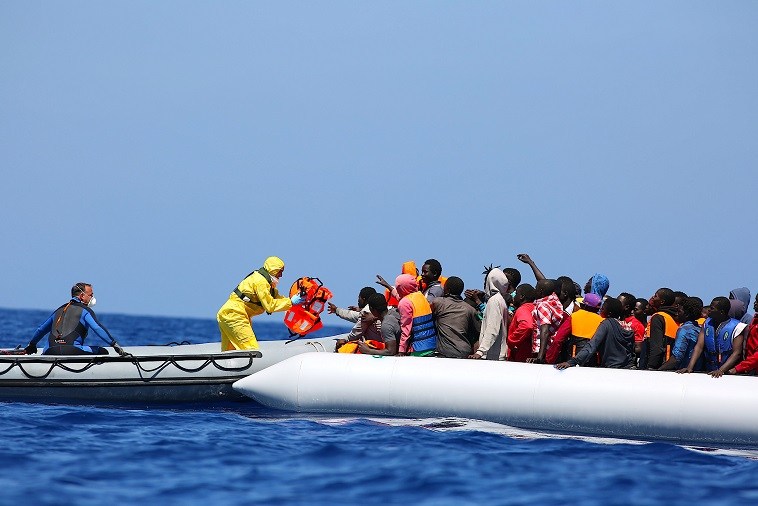European data confirm the trend in the year of the health emergency: the coronavirus has immigration on the eastern and western routes temporarily stopped but in 2020 the traffic towards Italy increased by 154%.
Data available to the European Union on asylum seekers and irregular border crossings reveal the effects of the covid-19 pandemic on migration to Europe.
Overall, there was a 33% decrease in asylum applications in 2020 compared to 2019: in the year of the coronavirus, there was the lowest number of irregular border crossings in the last 6 years. However, the impact of the health emergency and pandemic restrictions did not produce a uniform result for all countries. Irregular border crossings to the European Union decreased by 10%: 114,300 irregular immigrants were registered in the period between January and November 2020.
Despite the notable decrease in irregular arrivals, the real change has been the increase in people-trafficking on some of the migration routes to Europe.
Along the eastern Mediterranean, there was a 74% decrease compared to the previous year, an effect probably attributed to the few arrivals from Turkey to Greece, in addition to the political situation in Erdogan's country.
Among the countries of first entry, however, there is a fundamental fact: along the route of the Central Mediterranean, that is the one that leads to Malta and Italy, human trafficking has increased.
The increase in 2020 compared to 2019 is +154%: there were 34,100 irregular arrivals in the year of the outbreak of the pandemic, compared to nearly 11,500 in the previous year. The majority of people landed in Lampedusa.
In 2020, landings have consistently exceeded the levels of 2019. The data from the Italian Ministry of the Interior confirmed the trend.
Likewise, Spain registered a +46% increase of arrivals, about 35,800 people. The effects of the restrictions issued by the Sanchez government on the Iberian Peninsula, linked to Covid-19, on the smuggling of migrants have been temporary: the growth trend has shown that starting from August 2020, the number of arrivals to Spain was significantly higher than in 2019.
To summarize, from the general sum on the change in traffic in the routes leading to Europe we can therefore observe that only in the period from January to August 2020 there was an increase of 201% annual basis of crossings on the Central Mediterranean route, offset by reductions on the eastern Mediterranean route (-63%) and the western Mediterranean route (-21%).
Ylva Johansson, Commissioner for European Home Affairs, said that "the pandemic has had a major impact on migration and migrants themselves, who have often played a key role in the EU's response to COVID-19 while addressing risks disproportionately. As we negotiate the new pact on migration and asylum, Member States must continue strengthening and reforming their migration management systems. Now that few arrivals translate into less work for asylum systems, it is time just to agree on a fair, effective, and resilient way to take on this responsibility together."
While the pandemic has temporarily blocked the migration routes that favour land borders, it has intensified human trafficking along the Mediterranean. Until the health emergency is brought under control and without a real economic recovery, the poor prospects for employment and health care in African countries will continue to push people to migrate to southern Europe.


